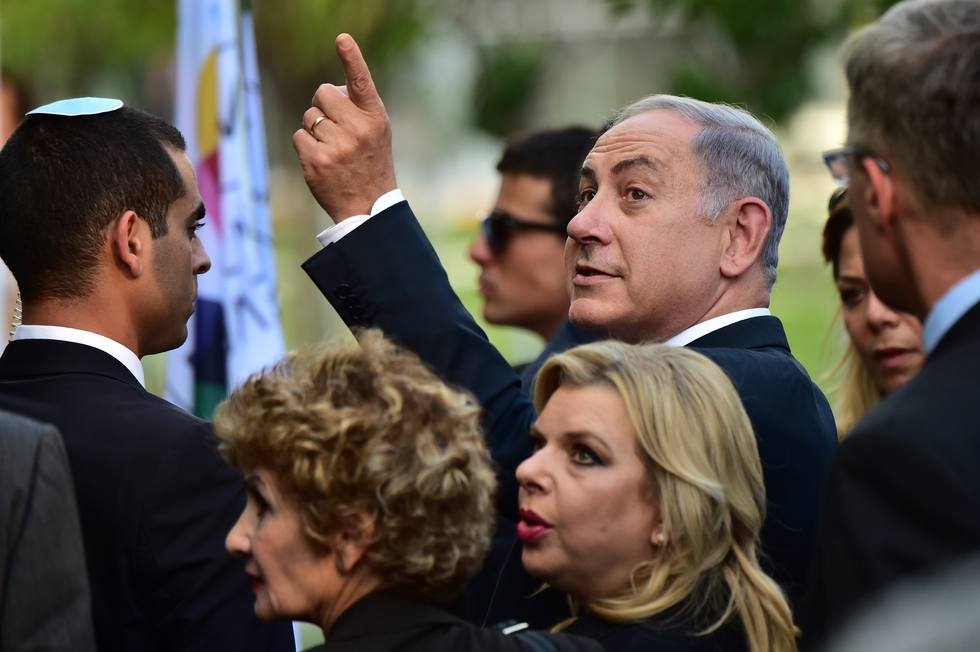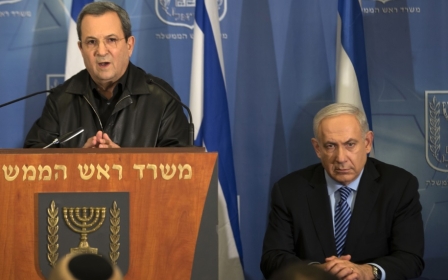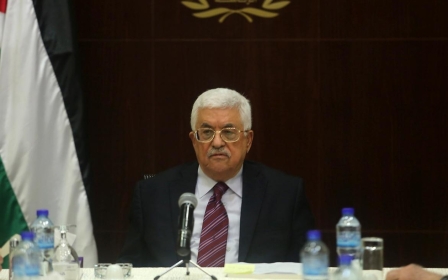Netanyahu 'ready' to talk two-state solution in Ramallah

Israeli Prime Minister Benjamin Netanyahu has said he is ready to travel to Ramallah to meet his Palestinian counterpart to discuss a two-state solution.
His comments came as he met a group of female activists, Women Wage Peace, whose members had taken turns to stage a collective 50-day hunger strike in front of his residence.
The strike, timed to coincide with the entire first anniversary of last summer’s devastating military bombardment of the Gaza Strip, was called "Operation Protective Fast," a reference to Israel's codename for the military operation, "Operation Protective Edge".
Last summer's 50-day military action killed over 2,200 Palestinians, most of them civilians, and 73 people on the Israeli side, most of them soldiers, according to UN figures.
The hunger strike aimed to urge the Israeli government to “start negotiations with the Palestinians for a non-violent … agreement,” according to the activists.
According to a statement released by Netanyahu’s office on Tuesday evening, the premier asked the women to tell Abu Mazen (Palestinian Prime Minister Mahmoud Abbas) that he was prepared to meet him.
“I have no preconditions for negotiations. I am ready now to go to Ramallah or any other place in order to meet and hold direct negotiations,” Netanyahu is reported to have said.
However, he demanded that a two-state solution be based on “a demilitarised Palestinian state that recognises the national state of the Jewish People”.
Recent weeks have seen intense speculation over reports that Hamas was involved in negotiations with Israel aimed at reaching a long-term truce deal.
Hamas last week moved to quash the rumours, calling reports of an impending deal “lies that have no basis in reality”.
Hamas, which holds sway in the Gaza Strip, said instead that the lifting of a years-long siege imposed on the coastal enclave was a precondition for any serious peace talks.
In a stark warning issued on Tuesday, the UN warned that the Gaza Strip could be “uninhabitable” by 2020, by which time it will have been under the Israeli blockade for a decade and a half.
"The social, health and security-related ramifications of the high population density and overcrowding are among the factors that may render Gaza unliveable by 2020," the UN Conference on Trade and Development (UNCTAD) wrote in its annual report.
According to the report, the blockade has “ravaged the already debilitated infrastructure of Gaza, shattered its productive base, left no time for meaningful reconstruction or economic recovery and impoverished the Palestinian population in Gaza”.
The UN agency warned that, as long as the blockade remains in place, no amount of donor aid will be able to reverse the dire economic conditions left in its wake.
New MEE newsletter: Jerusalem Dispatch
Sign up to get the latest insights and analysis on Israel-Palestine, alongside Turkey Unpacked and other MEE newsletters
Middle East Eye delivers independent and unrivalled coverage and analysis of the Middle East, North Africa and beyond. To learn more about republishing this content and the associated fees, please fill out this form. More about MEE can be found here.




